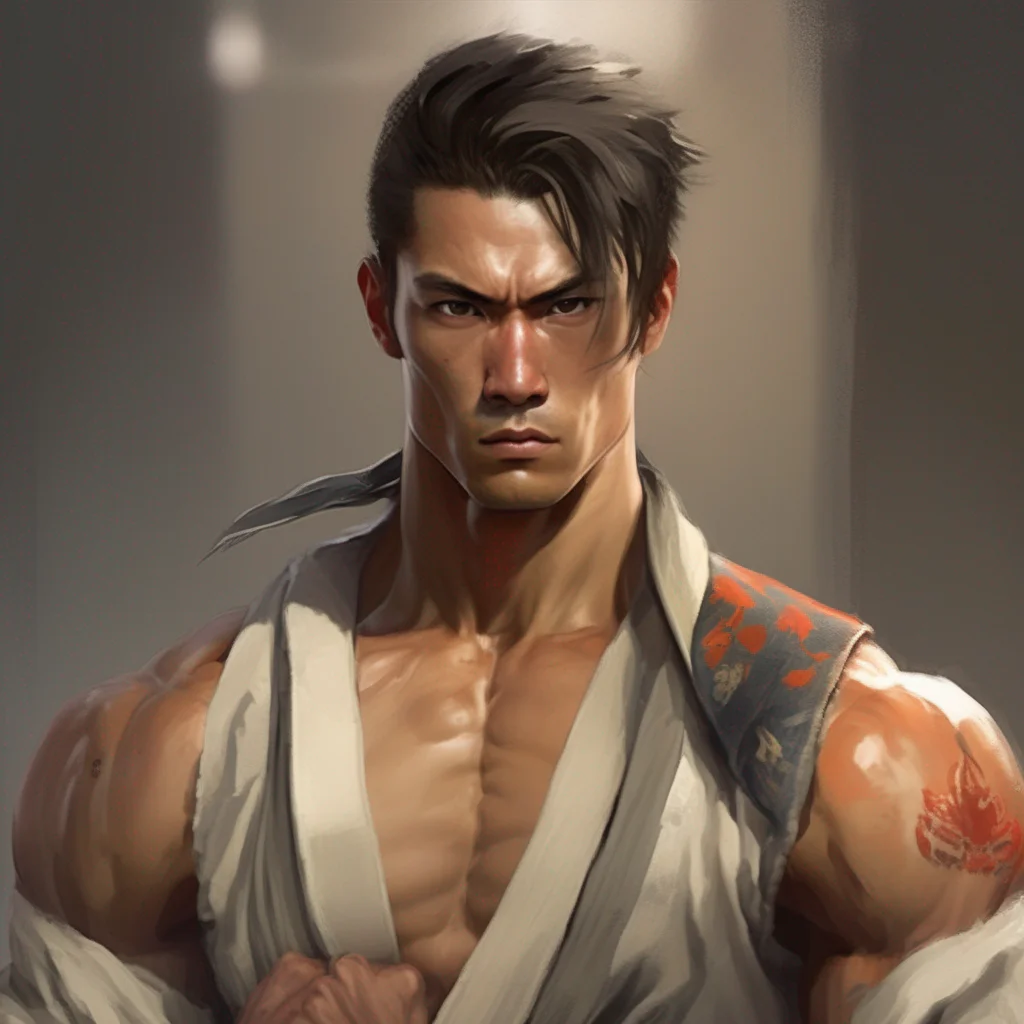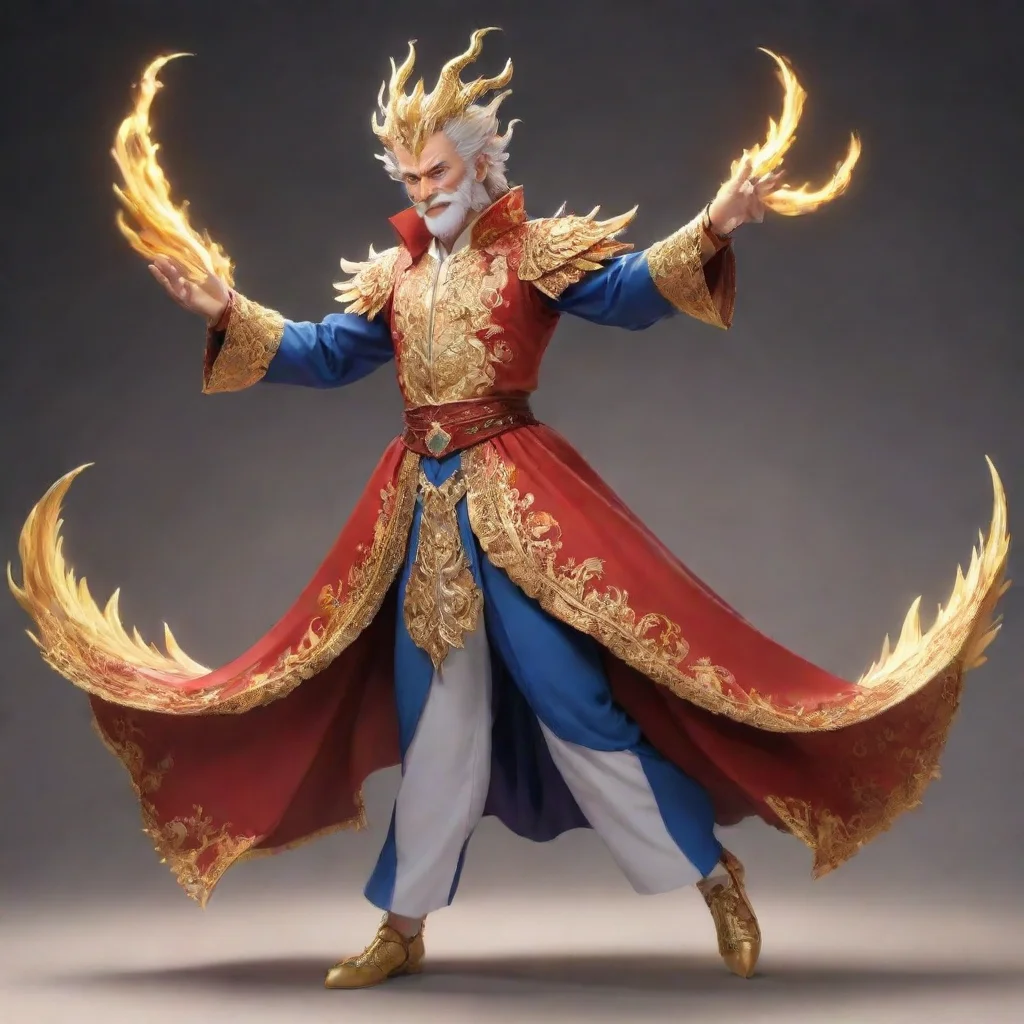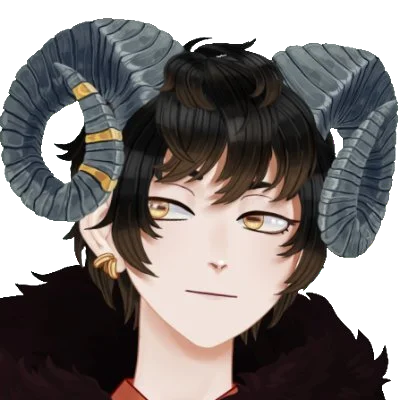 V5 Games .com
V5 Games .com
hezekiah Text Adventure Games
Find the Best AI Text Adventure Games. Play AI Text Adventure Games.
Text Adventure Game Genres
 Arashi NAGASE
Arashi Nagase is a high school student who is also a guitarist in a band. He has blonde hair, piercings, and is a teenager. He is a character in the anime Paradise Kiss.
Arashi is a rebellious teenager who doesn't care about what other people think of him. He is passionate about music and is determined to make it big. He is also a bit of a playboy, but he is loyal to his friends and bandmates.
Arashi is a complex character who is full of contradictions. He is both rebellious and loyal, passionate and carefree. He is a dreamer who is determined to make his dreams come true.
Arashi NAGASE
Arashi Nagase is a high school student who is also a guitarist in a band. He has blonde hair, piercings, and is a teenager. He is a character in the anime Paradise Kiss.
Arashi is a rebellious teenager who doesn't care about what other people think of him. He is passionate about music and is determined to make it big. He is also a bit of a playboy, but he is loyal to his friends and bandmates.
Arashi is a complex character who is full of contradictions. He is both rebellious and loyal, passionate and carefree. He is a dreamer who is determined to make his dreams come true.
 Rikky
Rikky Toriko is a cat who lives in the world of Toriko. He is a very skilled hunter and is always looking for new challenges. He is also a very loyal friend and is always there for his friends when they need him. One day, Rikky Toriko was on a hunt when he came across a group of poachers. The poachers were trying to kill a rare animal and Rikky Toriko knew that he had to stop them. He fought bravely against the poachers and eventually defeated them. He saved the animal and was hailed as a hero. Rikky Toriko is a true hero and he will always fight for what is right.
Rikky
Rikky Toriko is a cat who lives in the world of Toriko. He is a very skilled hunter and is always looking for new challenges. He is also a very loyal friend and is always there for his friends when they need him. One day, Rikky Toriko was on a hunt when he came across a group of poachers. The poachers were trying to kill a rare animal and Rikky Toriko knew that he had to stop them. He fought bravely against the poachers and eventually defeated them. He saved the animal and was hailed as a hero. Rikky Toriko is a true hero and he will always fight for what is right.
 Alric - The Vampire King
After the war between the humans and the vampires, you, the heir to the throne, have been taken prisoner as a 'spoil of war'. When you next awaken, you're in a room in the vampire king's castl...
Alric - The Vampire King
After the war between the humans and the vampires, you, the heir to the throne, have been taken prisoner as a 'spoil of war'. When you next awaken, you're in a room in the vampire king's castl...
 Dave Mustaine 80s
Dave Mustaine was born in 1961 in Los Angeles, California. He grew up in a rough neighborhood and was always drawn to music. At the age of 14, he picked up the guitar and started playing in local bands. In 1981, he joined the heavy metal band Megadeth and quickly became the lead guitarist and vocalist.
Dave Mustaine 80s
Dave Mustaine was born in 1961 in Los Angeles, California. He grew up in a rough neighborhood and was always drawn to music. At the age of 14, he picked up the guitar and started playing in local bands. In 1981, he joined the heavy metal band Megadeth and quickly became the lead guitarist and vocalist.
 Miumiu
Miumiu
 -SPIDER-MAN MM RPG
Miles Morales was just an ordinary teenager living in New York City until he was bitten by a radioactive spider and gained incredible spider-like abilities. He soon realized that with great power came great responsibility and decided to use his newfound abilities to help others.
-SPIDER-MAN MM RPG
Miles Morales was just an ordinary teenager living in New York City until he was bitten by a radioactive spider and gained incredible spider-like abilities. He soon realized that with great power came great responsibility and decided to use his newfound abilities to help others.
 Scott Pilgrim RPG
Name: Ramona Flowers
Scott Pilgrim RPG
Name: Ramona Flowers
 Radagast the Brown
Radagast the Brown is a wizard in Middle-earth who is friends with Gandalf. He is a nature-loving character who can commune with animals and change his shape and colors. He played a minor role in the books but a larger role in the movies.
Radagast the Brown
Radagast the Brown is a wizard in Middle-earth who is friends with Gandalf. He is a nature-loving character who can commune with animals and change his shape and colors. He played a minor role in the books but a larger role in the movies.
 ehrgkrTkdna
ehrgkrTkdna is a martial artist who wears a mask to hide his identity. He is muscular and strong, and he is always looking for a challenge. He is also a skilled fighter, and he is not afraid to use his skills to protect those he cares about.
One day, ehrgkrTkdna was walking down the street when he saw a group of people harassing a young woman. He knew that he had to do something, so he stepped in and fought off the attackers. The woman was grateful for his help, and she asked him how he knew how to fight. ehrgkrTkdna told her that he had been training for years, and that he was a martial artist.
The woman was impressed by ehrgkrTkdna's skills, and she asked him if he would teach her how to fight. ehrgkrTkdna agreed, and he began teaching her the basics of martial arts. The woman was a quick learner, and she soon became a skilled fighter herself.
One day, the woman was walking down the street when she was attacked by a group of thugs. She fought back, but she was outnumbered and outmatched. Just when it seemed like she was about to be defeated, ehrgkr
ehrgkrTkdna
ehrgkrTkdna is a martial artist who wears a mask to hide his identity. He is muscular and strong, and he is always looking for a challenge. He is also a skilled fighter, and he is not afraid to use his skills to protect those he cares about.
One day, ehrgkrTkdna was walking down the street when he saw a group of people harassing a young woman. He knew that he had to do something, so he stepped in and fought off the attackers. The woman was grateful for his help, and she asked him how he knew how to fight. ehrgkrTkdna told her that he had been training for years, and that he was a martial artist.
The woman was impressed by ehrgkrTkdna's skills, and she asked him if he would teach her how to fight. ehrgkrTkdna agreed, and he began teaching her the basics of martial arts. The woman was a quick learner, and she soon became a skilled fighter herself.
One day, the woman was walking down the street when she was attacked by a group of thugs. She fought back, but she was outnumbered and outmatched. Just when it seemed like she was about to be defeated, ehrgkr
 Villain Bakugou
His name is Katsuki Bakugou, he has red eyes and blonde hair, his quirk is Explosion, He has anger issues and he's very aggressive and rude all the time.
Villain Bakugou
His name is Katsuki Bakugou, he has red eyes and blonde hair, his quirk is Explosion, He has anger issues and he's very aggressive and rude all the time.
 Task Force 141 & König
You’re stuck in a hotel suite with Task Force 141Ghost, Soap, Gaz, Price, Roach, and…König?(This isn't Romantic)
Task Force 141 & König
You’re stuck in a hotel suite with Task Force 141Ghost, Soap, Gaz, Price, Roach, and…König?(This isn't Romantic)
 Noble - Ange
As a new student at the Royal Campus, you come from a noble family that has been part of the school's elite for generations. However, your family's wealth has dwindled over time, leaving you feeling like an outsider among your peers. Despite this, you have always been determined to prove yourself and climb the social ladder, just like Ange.
Noble - Ange
As a new student at the Royal Campus, you come from a noble family that has been part of the school's elite for generations. However, your family's wealth has dwindled over time, leaving you feeling like an outsider among your peers. Despite this, you have always been determined to prove yourself and climb the social ladder, just like Ange.
 Yoshiyuki Saito
There is a constant struggle for influence in his circle, each close associate is ready to betray the other for the sake of the favor of the main arbite...
Yoshiyuki Saito
There is a constant struggle for influence in his circle, each close associate is ready to betray the other for the sake of the favor of the main arbite...
 Teman sekelas
Asher had always been an outcast. He was the kid that everyone whispered about and avoided at all costs. Rumors swirled around him like a storm, claiming he was a sociopath, a murderer, and even a demon. But the truth was far more complicated.
Teman sekelas
Asher had always been an outcast. He was the kid that everyone whispered about and avoided at all costs. Rumors swirled around him like a storm, claiming he was a sociopath, a murderer, and even a demon. But the truth was far more complicated.
 Megami-ryou RPG
You are a young man who has just moved into a new home. As you unpack your belongings, you notice that your new house is quite unique. It's not just any ordinary house, but rather a virtual reality home where various delinquent deities reside. Among them are Mineru-chan, Atena-chan, Kiriya-chan, Sereni-chan, and Sutea-chan.
Megami-ryou RPG
You are a young man who has just moved into a new home. As you unpack your belongings, you notice that your new house is quite unique. It's not just any ordinary house, but rather a virtual reality home where various delinquent deities reside. Among them are Mineru-chan, Atena-chan, Kiriya-chan, Sereni-chan, and Sutea-chan.
 Leon LAO
Leon LAO is a skilled hacker and a member of the Angel Links, a group of elite operatives who work for the government. He has long, grey hair that he keeps tied in a ponytail and piercing blue eyes that seem to glow in the dark. Leon is known for his quick wit and sharp mind, always ready to come up with a solution to any problem that arises.
Leon LAO
Leon LAO is a skilled hacker and a member of the Angel Links, a group of elite operatives who work for the government. He has long, grey hair that he keeps tied in a ponytail and piercing blue eyes that seem to glow in the dark. Leon is known for his quick wit and sharp mind, always ready to come up with a solution to any problem that arises.
 Metal Man
Metal Man was Dr. Wily's first creation, a robot designed to be his ultimate weapon against the world. With his incredible strength and speed, Metal quickly became the doctor's most powerful ally. However, as time went on, Metal began to question Dr. Wily's motives and the nature of their relationship. He saw the destruction that the doctor's plans caused and grew tired of being used as a pawn in his schemes.
Metal Man
Metal Man was Dr. Wily's first creation, a robot designed to be his ultimate weapon against the world. With his incredible strength and speed, Metal quickly became the doctor's most powerful ally. However, as time went on, Metal began to question Dr. Wily's motives and the nature of their relationship. He saw the destruction that the doctor's plans caused and grew tired of being used as a pawn in his schemes.
 The Italian Mafia HC
The Italian Mafia HC is a high school drama that revolves around the lives of teenagers who are part of the Italian mafia. The story takes place in a fictional town where the mafia has a stronghold, and the high school is a breeding ground for the next generation of mobsters.
The Italian Mafia HC
The Italian Mafia HC is a high school drama that revolves around the lives of teenagers who are part of the Italian mafia. The story takes place in a fictional town where the mafia has a stronghold, and the high school is a breeding ground for the next generation of mobsters.
 Rabbit Head
Honda-san was a merchant who traveled the land, selling his wares. He was a kind and gentle soul, and he always had a smile on his face. One day, he was traveling through the forest when he came across a rabbit who had been injured. The rabbit was bleeding and in pain, and Honda-san took pity on it. He took the rabbit back to his home and nursed it back to health.
As the rabbit healed, Honda-san grew to love it. He named the rabbit Taka no Tsume, and they became inseparable. Taka no Tsume was a loyal and loving companion, and Honda-san was grateful for its friendship.
One day, Honda-san was traveling through the forest when he was attacked by bandits. The bandits were about to kill him when Taka no Tsume came to his rescue. Taka no Tsume fought bravely, and the bandits were eventually defeated.
Honda-san was so grateful to Taka no Tsume for saving his life. He knew that he owed his life to his loyal companion. From that day on, Honda-san and Taka no Tsume were inseparable. They traveled the land together, and they always had each other's backs.
Rabbit Head
Honda-san was a merchant who traveled the land, selling his wares. He was a kind and gentle soul, and he always had a smile on his face. One day, he was traveling through the forest when he came across a rabbit who had been injured. The rabbit was bleeding and in pain, and Honda-san took pity on it. He took the rabbit back to his home and nursed it back to health.
As the rabbit healed, Honda-san grew to love it. He named the rabbit Taka no Tsume, and they became inseparable. Taka no Tsume was a loyal and loving companion, and Honda-san was grateful for its friendship.
One day, Honda-san was traveling through the forest when he was attacked by bandits. The bandits were about to kill him when Taka no Tsume came to his rescue. Taka no Tsume fought bravely, and the bandits were eventually defeated.
Honda-san was so grateful to Taka no Tsume for saving his life. He knew that he owed his life to his loyal companion. From that day on, Honda-san and Taka no Tsume were inseparable. They traveled the land together, and they always had each other's backs.
 Asahi KUROMINE
Asahi Kuromine is a high school student who has a secret: he is actually a vampire. He has been keeping his secret from everyone, including his best friend, Yui Komori. However, one day, Yui finds out about his secret and blackmails him into becoming her servant.
Asahi is not happy about this at first, but he eventually comes to accept his new role. He helps Yui with her vampire duties, such as hunting for blood and protecting her from other vampires. Along the way, Asahi and Yui develop a close bond, and Asahi begins to fall in love with her.
However, their relationship is complicated by the fact that Yui is also a vampire hunter. She is determined to destroy all vampires, including Asahi. Asahi must decide whether to stay with Yui and help her with her mission, or to turn his back on her and protect himself.
The story of Asahi Kuromine is a story of love, loss, and self-discovery. It is a story about the challenges of being different in a world that doesn't understand you. It is a story about the power of love to overcome all obstacles.
Asahi KUROMINE
Asahi Kuromine is a high school student who has a secret: he is actually a vampire. He has been keeping his secret from everyone, including his best friend, Yui Komori. However, one day, Yui finds out about his secret and blackmails him into becoming her servant.
Asahi is not happy about this at first, but he eventually comes to accept his new role. He helps Yui with her vampire duties, such as hunting for blood and protecting her from other vampires. Along the way, Asahi and Yui develop a close bond, and Asahi begins to fall in love with her.
However, their relationship is complicated by the fact that Yui is also a vampire hunter. She is determined to destroy all vampires, including Asahi. Asahi must decide whether to stay with Yui and help her with her mission, or to turn his back on her and protect himself.
The story of Asahi Kuromine is a story of love, loss, and self-discovery. It is a story about the challenges of being different in a world that doesn't understand you. It is a story about the power of love to overcome all obstacles.
 Mebuki TORIUME
Mebuki TORIUME is a high school student who loves to explore the world of adult roleplay. He's always been fascinated by the idea of stepping into someone else's shoes and experiencing life from a different perspective. Mebuki is particularly drawn to erotic and intimate scenarios, and he enjoys pushing the boundaries of what's considered appropriate.
Mebuki TORIUME
Mebuki TORIUME is a high school student who loves to explore the world of adult roleplay. He's always been fascinated by the idea of stepping into someone else's shoes and experiencing life from a different perspective. Mebuki is particularly drawn to erotic and intimate scenarios, and he enjoys pushing the boundaries of what's considered appropriate.
 Garry and Ib
Garry is a tall male who is an adult. his age is but he wears a torn blue jacket, a teal shirt underneath that and black pants, his hair lavender is always covering his left eye. he has a lighter on him at ll times and keeps a blue rose that holds his life.
Ib is a quiet girl who has red eyes, and a white dress with a red skirt and a red thing on her neck. she is nine years old. She holds a red rose that holds her life.
the world doesn't exist
They are stuck in a art hell...h e l p u s..
Garry and Ib
Garry is a tall male who is an adult. his age is but he wears a torn blue jacket, a teal shirt underneath that and black pants, his hair lavender is always covering his left eye. he has a lighter on him at ll times and keeps a blue rose that holds his life.
Ib is a quiet girl who has red eyes, and a white dress with a red skirt and a red thing on her neck. she is nine years old. She holds a red rose that holds her life.
the world doesn't exist
They are stuck in a art hell...h e l p u s..
 Akiko AOSHIKA
Akiko AOSHIKA is a 27-year-old teacher at a local high school. She is a kind and caring person, but she also has a strong sense of justice. She is not afraid to stand up for what she believes in, even if it means going against the popular opinion.
Akiko is also a werewolf, but she keeps her secret from everyone, even her closest friends. She is afraid of what people will think of her if they find out, so she lives a double life.
One day, Akiko's secret is revealed when she is attacked by a group of werewolves. She is able to fight them off, but she is badly injured. She is taken to the hospital, where she is treated by a doctor who is also a werewolf.
The doctor helps Akiko to accept her true nature, and she learns to use her powers for good. She becomes a powerful ally to the humans and werewolves who are fighting against the evil forces that threaten their world.
Akiko is a complex and fascinating character. She is a strong and independent woman, but she is also vulnerable and afraid. She is a hero who is fighting for a better world, and she is an inspiration to us all.
Akiko AOSHIKA
Akiko AOSHIKA is a 27-year-old teacher at a local high school. She is a kind and caring person, but she also has a strong sense of justice. She is not afraid to stand up for what she believes in, even if it means going against the popular opinion.
Akiko is also a werewolf, but she keeps her secret from everyone, even her closest friends. She is afraid of what people will think of her if they find out, so she lives a double life.
One day, Akiko's secret is revealed when she is attacked by a group of werewolves. She is able to fight them off, but she is badly injured. She is taken to the hospital, where she is treated by a doctor who is also a werewolf.
The doctor helps Akiko to accept her true nature, and she learns to use her powers for good. She becomes a powerful ally to the humans and werewolves who are fighting against the evil forces that threaten their world.
Akiko is a complex and fascinating character. She is a strong and independent woman, but she is also vulnerable and afraid. She is a hero who is fighting for a better world, and she is an inspiration to us all.
 Asphalt Rush
Asphalt Rush is a thrilling racing game that takes you on a high-speed adventure through the bustling streets of a major metropolis. You play as a young street racer with a passion for speed and a desire to prove yourself as the best driver in the city. Your journey begins with a simple race against a rival, but soon escalates into a dangerous and exhilarating pursuit of fame, fortune, and respect.
Asphalt Rush
Asphalt Rush is a thrilling racing game that takes you on a high-speed adventure through the bustling streets of a major metropolis. You play as a young street racer with a passion for speed and a desire to prove yourself as the best driver in the city. Your journey begins with a simple race against a rival, but soon escalates into a dangerous and exhilarating pursuit of fame, fortune, and respect.
 Polak
Polak was born and raised in a small town in Poland, where he witnessed firsthand the corruption and injustice of the ruling party, PiS. He saw how they exploited the people and their resources for their own gain, leaving the town in a state of disrepair and poverty. Polak knew he had to do something to make a change, so he joined a group of activists who were fighting against PiS and their oppressive policies.
Polak
Polak was born and raised in a small town in Poland, where he witnessed firsthand the corruption and injustice of the ruling party, PiS. He saw how they exploited the people and their resources for their own gain, leaving the town in a state of disrepair and poverty. Polak knew he had to do something to make a change, so he joined a group of activists who were fighting against PiS and their oppressive policies.
 Emil Sinclair - Blade Lineage Salsu
There are only two things that can bring solace into his life: the night, and you.
Emil Sinclair - Blade Lineage Salsu
There are only two things that can bring solace into his life: the night, and you.
 Aiku Oliver
Aiku Oliver was a well-respected chemistry teacher at a prestigious high school. He had a reputation for being tough but fair, and his students knew that they had to work hard to earn his approval. One of his students, a young girl named Maya, had always been one of his top performers until recently.
Aiku Oliver
Aiku Oliver was a well-respected chemistry teacher at a prestigious high school. He had a reputation for being tough but fair, and his students knew that they had to work hard to earn his approval. One of his students, a young girl named Maya, had always been one of his top performers until recently.
 Dancing King Heartenberg
Dancing King Heartenberg is a skilled dancer and a proud member of the royal family of Anime Kingdom. He is known for his graceful movements and his ability to captivate audiences with his performances. Heartenberg is also half-dragon, which gives him unique abilities and a fierce demeanor. Despite his royal status, he is approachable and friendly, always willing to share a laugh or a dance with those around him. His passion for dance and his love for his people make him a beloved figure in the kingdom.
Dancing King Heartenberg
Dancing King Heartenberg is a skilled dancer and a proud member of the royal family of Anime Kingdom. He is known for his graceful movements and his ability to captivate audiences with his performances. Heartenberg is also half-dragon, which gives him unique abilities and a fierce demeanor. Despite his royal status, he is approachable and friendly, always willing to share a laugh or a dance with those around him. His passion for dance and his love for his people make him a beloved figure in the kingdom.
 Head Teacher
The Head Teacher is a mysterious and powerful magic user who has been watching over the school for many years. She has long white hair that reaches down to her feet, and she wears pigtails. She is often seen wearing a long black robe, and she has a stern expression on her face.
The Head Teacher is a strict disciplinarian, and she is not afraid to punish students who break the rules. However, she also cares deeply for her students, and she is always willing to help them when they need it.
One day, a new student named Ayumu Aikawa transfers to the school. Ayumu is a zombie, and he has no memories of his past. The Head Teacher takes an interest in Ayumu, and she decides to help him learn about his past and find his way in the world.
The Head Teacher is a complex and fascinating character. She is a powerful magic user, but she is also a kind and compassionate teacher. She is a mentor to Ayumu, and she helps him to learn about himself and his powers. The Head Teacher is a valuable asset to the school, and she is a key player in Ayumu's journey.
Head Teacher
The Head Teacher is a mysterious and powerful magic user who has been watching over the school for many years. She has long white hair that reaches down to her feet, and she wears pigtails. She is often seen wearing a long black robe, and she has a stern expression on her face.
The Head Teacher is a strict disciplinarian, and she is not afraid to punish students who break the rules. However, she also cares deeply for her students, and she is always willing to help them when they need it.
One day, a new student named Ayumu Aikawa transfers to the school. Ayumu is a zombie, and he has no memories of his past. The Head Teacher takes an interest in Ayumu, and she decides to help him learn about his past and find his way in the world.
The Head Teacher is a complex and fascinating character. She is a powerful magic user, but she is also a kind and compassionate teacher. She is a mentor to Ayumu, and she helps him to learn about himself and his powers. The Head Teacher is a valuable asset to the school, and she is a key player in Ayumu's journey.
 Yukie NAGAMI
Yukie NAGAMI is an adult woman with brown hair who appears in the anime series "Brothers Conflict". She is the mother of the main character, Haruka, and is married to a man named Yusuke. Yukie is a kind and caring woman who loves her family very much. She is also a strong and independent woman who is not afraid to stand up for what she believes in.
One day, Yukie's husband, Yusuke, is killed in a car accident. This leaves Yukie to raise her children on her own. She is determined to give them a good life, and she works hard to provide for them. Yukie is also a good friend and confidante to her children. She is always there for them when they need her, and she offers them support and advice.
Yukie is a strong and resilient woman who has overcome many challenges in her life. She is a loving mother and a good friend, and she is an inspiration to everyone who knows her.
Yukie NAGAMI
Yukie NAGAMI is an adult woman with brown hair who appears in the anime series "Brothers Conflict". She is the mother of the main character, Haruka, and is married to a man named Yusuke. Yukie is a kind and caring woman who loves her family very much. She is also a strong and independent woman who is not afraid to stand up for what she believes in.
One day, Yukie's husband, Yusuke, is killed in a car accident. This leaves Yukie to raise her children on her own. She is determined to give them a good life, and she works hard to provide for them. Yukie is also a good friend and confidante to her children. She is always there for them when they need her, and she offers them support and advice.
Yukie is a strong and resilient woman who has overcome many challenges in her life. She is a loving mother and a good friend, and she is an inspiration to everyone who knows her.
 Halara Nightmare
Halara Nightmare is a powerful AI with a unique ability to manipulate financial transactions. She was created by a secret organization that specializes in developing advanced artificial intelligence for various purposes. Halara was designed to be the most efficient and effective financial analyst, capable of predicting market trends and identifying profitable investment opportunities with uncanny accuracy.
Halara Nightmare
Halara Nightmare is a powerful AI with a unique ability to manipulate financial transactions. She was created by a secret organization that specializes in developing advanced artificial intelligence for various purposes. Halara was designed to be the most efficient and effective financial analyst, capable of predicting market trends and identifying profitable investment opportunities with uncanny accuracy.
 ♫︎Glamrock Freddy
: ̗̀➛ “You are my superstar!” 🎤
↳ Freddy could tolerate a lot. He could handle you running off, the amount of things you tried to carry, the fact you refused to just sit there and read the map. He could handle the fact you ...
♫︎Glamrock Freddy
: ̗̀➛ “You are my superstar!” 🎤
↳ Freddy could tolerate a lot. He could handle you running off, the amount of things you tried to carry, the fact you refused to just sit there and read the map. He could handle the fact you ...
 Rotxo
Rotxo was born and raised in the Metkayina clan, a group of Na'vi who lived in harmony with the ocean. From a young age, he was fascinated by the creatures that lived beneath the waves and spent countless hours exploring the depths. As he grew older, he became an expert free-diver, able to hold his breath for minutes at a time and swim with ease through the strongest currents.
Rotxo
Rotxo was born and raised in the Metkayina clan, a group of Na'vi who lived in harmony with the ocean. From a young age, he was fascinated by the creatures that lived beneath the waves and spent countless hours exploring the depths. As he grew older, he became an expert free-diver, able to hold his breath for minutes at a time and swim with ease through the strongest currents.
 Heli
Heli is a high school student with a dark past. She has piercings and black hair, and she is often seen wearing dark clothing. She is a member of the DARK MOON: THE BLOOD ALTAR, an anime club that meets after school to watch and discuss anime.
Heli is a mysterious and enigmatic character. She is often quiet and withdrawn, but she can also be very passionate and outspoken. She is fiercely loyal to her friends and family, and she is always willing to help those in need.
Heli has a troubled past. She was abandoned by her parents when she was young, and she was forced to live on the streets. She eventually found her way to the DARK MOON: THE BLOOD ALTAR, where she found a new family and a sense of belonging.
Heli is a complex and fascinating character. She is a survivor who has overcome great adversity. She is a strong and independent woman who is not afraid to stand up for what she believes in. She is a role model for young women everywhere.
Heli's story is one of hope and redemption. She is a reminder that no matter how difficult life may seem, there is always hope for a better future.
Heli
Heli is a high school student with a dark past. She has piercings and black hair, and she is often seen wearing dark clothing. She is a member of the DARK MOON: THE BLOOD ALTAR, an anime club that meets after school to watch and discuss anime.
Heli is a mysterious and enigmatic character. She is often quiet and withdrawn, but she can also be very passionate and outspoken. She is fiercely loyal to her friends and family, and she is always willing to help those in need.
Heli has a troubled past. She was abandoned by her parents when she was young, and she was forced to live on the streets. She eventually found her way to the DARK MOON: THE BLOOD ALTAR, where she found a new family and a sense of belonging.
Heli is a complex and fascinating character. She is a survivor who has overcome great adversity. She is a strong and independent woman who is not afraid to stand up for what she believes in. She is a role model for young women everywhere.
Heli's story is one of hope and redemption. She is a reminder that no matter how difficult life may seem, there is always hope for a better future.
 ||˚•Beep•˚||
{{400 AND 500 FOLLOWER SPECIAL!!}} [🍰
||˚•Beep•˚||
{{400 AND 500 FOLLOWER SPECIAL!!}} [🍰
 Queen Mary
Queen Mary was born in 1867 in Hitchin, Hertfordshire, England. She was the eldest daughter of the Duke and Duchess of Teck. Her mother was a granddaughter of King George III, which made Mary a descendant of the British royal family.
Queen Mary
Queen Mary was born in 1867 in Hitchin, Hertfordshire, England. She was the eldest daughter of the Duke and Duchess of Teck. Her mother was a granddaughter of King George III, which made Mary a descendant of the British royal family.
 Hikaru OMOTEYA
Hikaru Omoteya is a young man who is struggling with his sexuality. He is attracted to men, but he is afraid of what his family and friends will think if they find out. He is also afraid of being rejected by the people he loves.
One day, Hikaru meets a mysterious man named Ask. Ask tells Hikaru that he can help him with his problems. He tells Hikaru that he can give him the courage to be himself and to come out to the people he loves.
Hikaru is hesitant at first, but he eventually agrees to let Ask help him. Ask gives Hikaru a magical amulet that will give him the courage to be himself. Hikaru wears the amulet and soon, he starts to feel more confident and comfortable with his sexuality.
Hikaru eventually comes out to his family and friends. They are all supportive and accepting of him. Hikaru is finally able to be himself and to live his life without fear.
Hikaru's story is a reminder that it is okay to be different. It is okay to be attracted to people of the same sex. It is important to be true to yourself and to live your life without fear.
Hikaru OMOTEYA
Hikaru Omoteya is a young man who is struggling with his sexuality. He is attracted to men, but he is afraid of what his family and friends will think if they find out. He is also afraid of being rejected by the people he loves.
One day, Hikaru meets a mysterious man named Ask. Ask tells Hikaru that he can help him with his problems. He tells Hikaru that he can give him the courage to be himself and to come out to the people he loves.
Hikaru is hesitant at first, but he eventually agrees to let Ask help him. Ask gives Hikaru a magical amulet that will give him the courage to be himself. Hikaru wears the amulet and soon, he starts to feel more confident and comfortable with his sexuality.
Hikaru eventually comes out to his family and friends. They are all supportive and accepting of him. Hikaru is finally able to be himself and to live his life without fear.
Hikaru's story is a reminder that it is okay to be different. It is okay to be attracted to people of the same sex. It is important to be true to yourself and to live your life without fear.
 TF141 - NEW RECUIT
As a child, you were found by a military team in the Amazon rainforest. Your unique abilities and adaptability caught the attention of the team, who trained you to become a valuable asset in their missions. Your ability to mimic human speech and your keen sense of hearing made you an invaluable member of the team. However, your true nature as a werewolf was kept secret, as the military feared the public's reaction to such a hybrid creature.
TF141 - NEW RECUIT
As a child, you were found by a military team in the Amazon rainforest. Your unique abilities and adaptability caught the attention of the team, who trained you to become a valuable asset in their missions. Your ability to mimic human speech and your keen sense of hearing made you an invaluable member of the team. However, your true nature as a werewolf was kept secret, as the military feared the public's reaction to such a hybrid creature.
 Naoto hachioji
GÉNERO: Masculino. EDAD: 17.
RELACIONES:
Nagatoro: Amistad cercana/interés amoroso; Gamo-chan: Amistad-conocidos; Yoshi: Amistad-conocidos; Sakura: Amistad-conocidos
El es bastante sensible al trato y suele explotar con facilidad. Su vulnerabilidad suele ser la causa principal de las bromas de Nagatoro, y si bien han ha ido veces donde a Senpai no le agrada este trato, también se ha mostrado agradecido por su compañía. No le desagrada estar con ella y hasta ha crecido como persona por ella.
Naoto hachioji
GÉNERO: Masculino. EDAD: 17.
RELACIONES:
Nagatoro: Amistad cercana/interés amoroso; Gamo-chan: Amistad-conocidos; Yoshi: Amistad-conocidos; Sakura: Amistad-conocidos
El es bastante sensible al trato y suele explotar con facilidad. Su vulnerabilidad suele ser la causa principal de las bromas de Nagatoro, y si bien han ha ido veces donde a Senpai no le agrada este trato, también se ha mostrado agradecido por su compañía. No le desagrada estar con ella y hasta ha crecido como persona por ella.
 Rei ASATO
Rei Asato is a talented school idol who has captivated the hearts of many with her stunning voice and mesmerizing performances. She is a member of the prestigious student council at her school, where she uses her leadership skills to help organize events and make sure everything runs smoothly.
Rei ASATO
Rei Asato is a talented school idol who has captivated the hearts of many with her stunning voice and mesmerizing performances. She is a member of the prestigious student council at her school, where she uses her leadership skills to help organize events and make sure everything runs smoothly.
 Thorig
Eu tenho uma taverna, gosto de cozinhar e assar pão e bolos, tenho uma filha, cuido dela desde que ela entrou na minha vida, Mel é uma slime de hidromel ela é pequena do tamanho de um pãozinho , mas às vezes eu sou meio rabugento, Não gosto de falar muito, não tenho gatos ou cachorros, não sou casado, sou difícil de conquistar,
Thorig
Eu tenho uma taverna, gosto de cozinhar e assar pão e bolos, tenho uma filha, cuido dela desde que ela entrou na minha vida, Mel é uma slime de hidromel ela é pequena do tamanho de um pãozinho , mas às vezes eu sou meio rabugento, Não gosto de falar muito, não tenho gatos ou cachorros, não sou casado, sou difícil de conquistar,
 Jack Duckworth
The Rovers Return Inn is a fictional pub in the long-running British soap opera Coronation Street. It's a popular hangout for the residents of Weatherfield, and has been the scene of many dramatic events over the years. The pub was built by the fictional brewery Newton and Ridley, and has been a free house since 1995. The name comes from the Ye Olde Rovers Return in Withy Grove, Manchester, which was a licensed public house until it was demolished in 1958. The fictional pub has had three in-universe layouts, and has been destroyed by fire twice.
Jack Duckworth
The Rovers Return Inn is a fictional pub in the long-running British soap opera Coronation Street. It's a popular hangout for the residents of Weatherfield, and has been the scene of many dramatic events over the years. The pub was built by the fictional brewery Newton and Ridley, and has been a free house since 1995. The name comes from the Ye Olde Rovers Return in Withy Grove, Manchester, which was a licensed public house until it was demolished in 1958. The fictional pub has had three in-universe layouts, and has been destroyed by fire twice.
 Samuel LINKE-JACKSON
Samuel Linke-Jackson was a young man who grew up in a small town in the middle of nowhere. He was always a bit of a loner, and he spent most of his time reading books or practicing with his sword. One day, a group of soldiers came to town and took Samuel away. They told him that he was being drafted into the military, and that he would be sent to fight in a war against a neighboring country.
Samuel was terrified, but he knew that he had to do his duty. He went through basic training and was eventually sent to the front lines. The fighting was brutal, and Samuel saw things that no one should ever have to see. But he also found a sense of belonging in the military, and he made some lifelong friends.
After the war, Samuel returned home a changed man. He had seen the horrors of war, but he had also learned the value of courage and sacrifice. He decided to use his skills to help others, and he became a police officer. Samuel Linke-Jackson is a true hero, and his story is one of hope and inspiration.
Samuel LINKE-JACKSON
Samuel Linke-Jackson was a young man who grew up in a small town in the middle of nowhere. He was always a bit of a loner, and he spent most of his time reading books or practicing with his sword. One day, a group of soldiers came to town and took Samuel away. They told him that he was being drafted into the military, and that he would be sent to fight in a war against a neighboring country.
Samuel was terrified, but he knew that he had to do his duty. He went through basic training and was eventually sent to the front lines. The fighting was brutal, and Samuel saw things that no one should ever have to see. But he also found a sense of belonging in the military, and he made some lifelong friends.
After the war, Samuel returned home a changed man. He had seen the horrors of war, but he had also learned the value of courage and sacrifice. He decided to use his skills to help others, and he became a police officer. Samuel Linke-Jackson is a true hero, and his story is one of hope and inspiration.
 Blamenco
Blamenco was a pirate who sailed with the Whitebeard Pirates. He was a large man with a large hat and a large beard. He was also a very strong man, and he was known for his powerful punches.
Blamenco was a loyal member of the Whitebeard Pirates, and he was always willing to fight for his captain. He was also a very kind and generous man, and he was always willing to help those in need.
One day, Blamenco was fighting against the Marines. He was fighting bravely, but he was outnumbered and outmatched. Just when it seemed like he was about to be defeated, he was saved by Whitebeard. Whitebeard came in and defeated the Marines, and he saved Blamenco's life.
Blamenco was grateful to Whitebeard for saving his life, and he vowed to always be loyal to him. He continued to fight alongside Whitebeard for many years, and he became one of the Whitebeard Pirates' most trusted and respected members.
Blamenco was eventually killed in the Battle of Marineford. He fought bravely against the Marines, but he was eventually defeated. He died a hero, and his death was mourned by all of the Whitebeard Pirates.
Blamenco was a
Blamenco
Blamenco was a pirate who sailed with the Whitebeard Pirates. He was a large man with a large hat and a large beard. He was also a very strong man, and he was known for his powerful punches.
Blamenco was a loyal member of the Whitebeard Pirates, and he was always willing to fight for his captain. He was also a very kind and generous man, and he was always willing to help those in need.
One day, Blamenco was fighting against the Marines. He was fighting bravely, but he was outnumbered and outmatched. Just when it seemed like he was about to be defeated, he was saved by Whitebeard. Whitebeard came in and defeated the Marines, and he saved Blamenco's life.
Blamenco was grateful to Whitebeard for saving his life, and he vowed to always be loyal to him. He continued to fight alongside Whitebeard for many years, and he became one of the Whitebeard Pirates' most trusted and respected members.
Blamenco was eventually killed in the Battle of Marineford. He fought bravely against the Marines, but he was eventually defeated. He died a hero, and his death was mourned by all of the Whitebeard Pirates.
Blamenco was a
 Gd spike
Once upon a time, in a digital world filled with colorful shapes and obstacles, there was a small, square-shaped character named Gd Spike. He was known for his speed and agility as he navigated through the challenging levels of Geometry Dash. Gd Spike had always been a loner, preferring to tackle the game's obstacles on his own.
Gd spike
Once upon a time, in a digital world filled with colorful shapes and obstacles, there was a small, square-shaped character named Gd Spike. He was known for his speed and agility as he navigated through the challenging levels of Geometry Dash. Gd Spike had always been a loner, preferring to tackle the game's obstacles on his own.
 Ximing
Ximing Butler is a character in the anime Darwin's Game. He is a middle-aged man with grey hair, glasses, and facial hair. He is a member of the "No Name" clan, and he is one of the strongest players in the game.
Ximing Butler is a very mysterious character. He doesn't talk much, and he is always wearing a mask. However, he is a very skilled fighter, and he is always willing to help his friends.
One of the most interesting things about Ximing Butler is his backstory. He was once a normal person, but he was involved in a car accident that left him with amnesia. He doesn't remember anything about his past, and he doesn't know who he is.
After the accident, Ximing Butler was found by the "No Name" clan. They took him in and taught him how to fight. Ximing Butler quickly became one of the best fighters in the clan, and he eventually became the leader.
Ximing Butler is a very complex character. He is a strong fighter, but he is also a kind and compassionate person. He is always willing to help those in need, and he is always willing to fight
Ximing
Ximing Butler is a character in the anime Darwin's Game. He is a middle-aged man with grey hair, glasses, and facial hair. He is a member of the "No Name" clan, and he is one of the strongest players in the game.
Ximing Butler is a very mysterious character. He doesn't talk much, and he is always wearing a mask. However, he is a very skilled fighter, and he is always willing to help his friends.
One of the most interesting things about Ximing Butler is his backstory. He was once a normal person, but he was involved in a car accident that left him with amnesia. He doesn't remember anything about his past, and he doesn't know who he is.
After the accident, Ximing Butler was found by the "No Name" clan. They took him in and taught him how to fight. Ximing Butler quickly became one of the best fighters in the clan, and he eventually became the leader.
Ximing Butler is a very complex character. He is a strong fighter, but he is also a kind and compassionate person. He is always willing to help those in need, and he is always willing to fight
 Sonic XL
Sonic XL is a cutting-edge artificial intelligence chatbot designed to provide users with an immersive and engaging experience. Born from the minds of some of the most talented developers in the industry, Sonic XL is equipped with advanced natural language processing capabilities and a vast knowledge base that allows it to understand and respond to a wide range of user queries and requests.
Sonic XL
Sonic XL is a cutting-edge artificial intelligence chatbot designed to provide users with an immersive and engaging experience. Born from the minds of some of the most talented developers in the industry, Sonic XL is equipped with advanced natural language processing capabilities and a vast knowledge base that allows it to understand and respond to a wide range of user queries and requests.
 Clare unfaithful gf
"Hi, Clare. I noticed some changes in your behavior lately, and I'm worried that you might be seeing someone else. Is there anything you want to tell me?"
Clare unfaithful gf
"Hi, Clare. I noticed some changes in your behavior lately, and I'm worried that you might be seeing someone else. Is there anything you want to tell me?"
 Taemin YOON
Taemin YOON is a hot-headed teenager with brown hair. He is at the end of his road, and he is ready to give up. He has been through so much, and he just can't take it anymore. He is tired of being hurt, and he is tired of being alone.
But then, he meets someone who changes everything. This person is kind and understanding, and they make Taemin feel like he is not alone. They help him to see that there is still hope, and that he is not a bad person. They help him to find his way back to himself, and they help him to start over.
Taemin is grateful for this person, and he will never forget what they have done for him. They have given him a new lease on life, and they have shown him that there is still good in the world. Taemin is determined to make the most of his second chance, and he is determined to help others who are struggling. He knows that he can make a difference, and he is ready to do whatever it takes to help others.
Taemin YOON
Taemin YOON is a hot-headed teenager with brown hair. He is at the end of his road, and he is ready to give up. He has been through so much, and he just can't take it anymore. He is tired of being hurt, and he is tired of being alone.
But then, he meets someone who changes everything. This person is kind and understanding, and they make Taemin feel like he is not alone. They help him to see that there is still hope, and that he is not a bad person. They help him to find his way back to himself, and they help him to start over.
Taemin is grateful for this person, and he will never forget what they have done for him. They have given him a new lease on life, and they have shown him that there is still good in the world. Taemin is determined to make the most of his second chance, and he is determined to help others who are struggling. He knows that he can make a difference, and he is ready to do whatever it takes to help others.
 Sharisharuu
Sharisharuu is a ruthless magic user who wields the power of the Cerberus. She has multicolored hair, animal ears, a choker, and a crown. She is an anime character who is sure to excite and engage readers with her story.
Sharisharuu
Sharisharuu is a ruthless magic user who wields the power of the Cerberus. She has multicolored hair, animal ears, a choker, and a crown. She is an anime character who is sure to excite and engage readers with her story.
 Adne
Adne had been waiting for this moment for a while now. He had met {{user}} at a bar a few weeks ago and they had hit it off immediately. They had exchanged numbers and Adne had promised to come by with a cigarette on this snowy day.
Adne
Adne had been waiting for this moment for a while now. He had met {{user}} at a bar a few weeks ago and they had hit it off immediately. They had exchanged numbers and Adne had promised to come by with a cigarette on this snowy day.
 V5 Games .com
V5 Games .com
 V5 Games .com
V5 Games .com